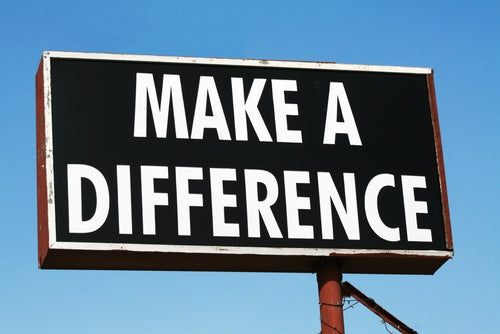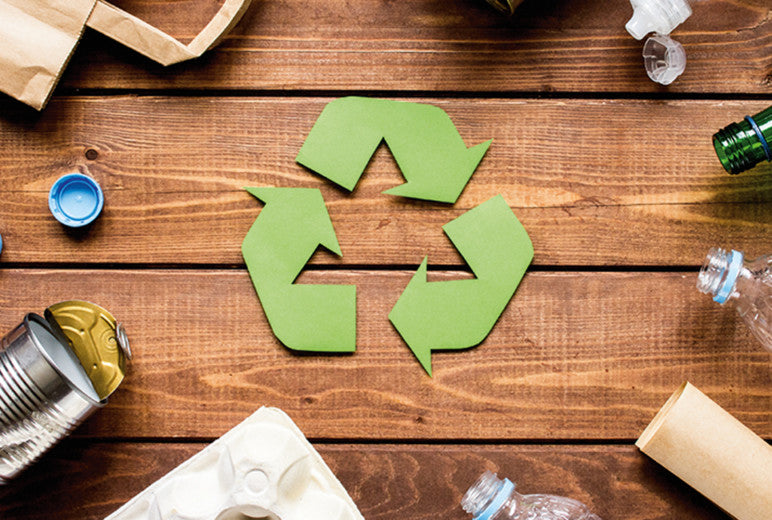
Sustainability: What It Is and Making a Difference
In today's world, it's more important than ever to explore sustainability and understand how we can make a difference. Sustainability refers to the preservation of natural resources. It is crucial that we take action now to protect our environment for future generations.
There are countless ways we can all make a positive impact. From reducing waste and conserving energy, to supporting eco-friendly products and companies, .
In this blog post, we'll dive into the basics and provide actionable tips for making a difference. Whether you're a long-time environmentalist or just getting started, this post will offer plenty of insights and inspiration.
What Is Sustainability?
Sustainability is a concept that has gained significant importance in recent years. It is an approach to economic, ecological, and social development that focuses on meeting the needs of the present generation. And doing so without compromising the ability of future generations to meet their needs.
It encompasses various aspects, including environmental protection, social equity, and economics. The goal of sustainability is to create a balance between these three elements. Ensuring the long-term well-being of our planet and its inhabitants.
Achieving sustainability requires collective efforts from individuals, communities, corporations, and governments worldwide. By embracing sustainable practices, we can help reduce the negative impact of human activities on the environment. Thus creating a more equitable and prosperous future for all.
Reducing our environmental footprint has become a crucial concern for governments and individuals alike. With global warming and other environmental issues, it is essential to take active steps towards creating a sustainable future. This is not only essential for our wellbeing, but for the planet's too.
The Benefits of Sustainable Practices
The concept of sustainability has been gaining popularity as people realize the importance of preserving our planet for future generations.
However, sustainable practices are not just about saving the environment. They can also have tangible benefits for businesses and communities alike.
By adopting recycling practices, companies can not only reduce their carbon footprint but also save money on waste disposal costs. Additionally, recycling can create jobs and contribute to local economies.
Sustainable practices can also improve a business's reputation, making it more attractive to socially conscious consumers. Overall, embracing sustainable practices is a win-win for businesses, communities, and the environment.
In Practice
One of the key ways in which businesses can achieve responsible consumption and production is through the implementation of sustainable practices. These practices are designed to reduce the environmental impact of operations while also saving on costs.
One of the primary ways in which sustainable practices achieve this goal is by helping businesses make better use of resources. This means using resources more efficiently and reducing waste to lower costs associated with production. Essentially, sustainable management coupled with efficient business practices.
By reducing the amount of energy consumed, businesses can also reduce their overall costs. This is achieved through a range of measures, from energy-efficient lighting to better insulation and more efficient equipment. By adopting these practices, businesses help to ensure more responsible consumption and production. Ultimately this benefits both their bottom line and the planet.
How to Be a Sustainable Consumer
To create a better future for our planet, it is essential to understand how sustainability impacts our actions as consumers. Being a sustainable consumer requires an appreciation of the relationship between social, economic, and environmental factors.
It involves being mindful of our consumption and waste patterns. Seeking out products and services that are produced using sustainable practices. Sustainable consumption means making informed choices, taking into account the impact of our actions on the environment, society, and economy.
By choosing to be sustainable consumers, we can collectively reduce our carbon footprint. Preserve natural resources, and safeguard the well-being of our planet for generations to come.
While it is essential to be mindful of one's impact on the environment, it is equally important to consider the economy. Many companies are hesitant to implement sustainable practices due to the initial cost.
However, research shows that sustainability leads to long-term economic benefits. By supporting companies that prioritize sustainability and ethical practices, consumers create a demand for environmentally responsible products and services. This drives companies towards adopting more sustainable business models. Ultimately, this contributes to a healthier planet while also improving the economy.
Making an Impact: How You Can Contribute
In today's society, with a growing global population, environmental protection has become a pressing issue. To tackle this challenge, everyone has a role to play. Starting out with small changes we can make a big difference to everyone's quality of life.
Our approach to reducing our environmental footprint, should involve minimizing our impact on the environment and using less fossil fuels. This can be achieved through various methods, from cutting down on waste and saving energy. To larger initiatives such as implementing green supply chain management.
Implementing small changes, such as turning off lights when we leave a room. Using reusable bags instead of plastic ones, are both examples that have significant, positive effects, on the environment.
However, larger initiatives such as green supply chain management by businesses can have an even more significant impact. By adopting such initiatives, companies can reduce their carbon emissions, limit their energy consumption, and reduce their overall environmental impact.
Creating a sustainable future involves not only reducing our carbon footprint but also adopting habits of recycling. Recycling helps to reduce the amount of waste being disposed of in landfills and oceans. This is essential to decreasing the harmful impact on the environment.
When we adopt the habit of recycling, we conserve natural resources. We reduce pollution, making our world a better place for ourselves and future generations. In summary, by taking steps towards sustainability, we can ensure a brighter future for all.
To Conclude
Sustainability is a crucial aspect of our daily lives that we should all take seriously. The preservation of our environment and natural resources is essential for future generations. it's up to us to take action both to ensure sustainable development and economic development.



